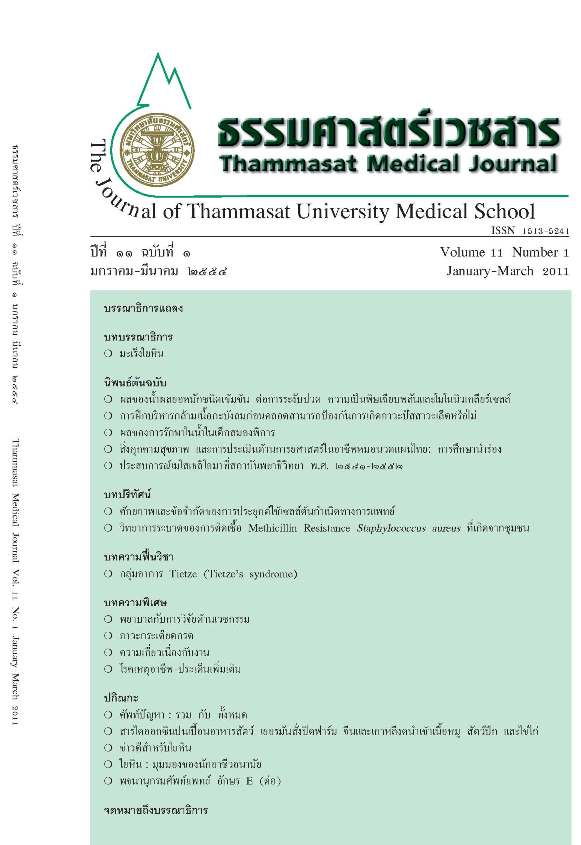Can antenatal pelvic floor muscle training prevent urinary incontinence?
Keywords:
Pregnancy, Urinary incontinence, pelvic floor muscleAbstract
Objectives: To assess the efficacy of antenatal pelvic floor muscle training (PFMT) for preventingurinary incontinence.
Methods: 219 nulliparous women in first trimester, who visited the antenatal care clinic atThammasat University Hospital, were recruited. They were asked to answer theThai version of Kingûs health questionnaires and were randomly divided into twogroups. One hundred and eleven women were allocated to non-PFMT groupand 108 to PFMT group. The outcome was the prevalence of moderately to severeurinary incontinence in first trimester, 30-38 weeks gestation and 6 months postpartum.
Results: Frequency and nocturia were the first and second most frequent of bladderproblems, respectively. Only 1.4% in non-PMFT group and 1.8% in PMFT grouphad urge incontinence. No woman in PMFT group had stress incontinence in firsttrimester. During 30-38 weeks, the women in PMFT group reported moderate tosevere stress incontinence less than the women in non-PMFT group with statisticalsignificance (P = 0.03). At 6 months postpartum, the women in non-PMFT group reportedthat frequency, nocturia, urge incontinence and stress incontinence affected theirlife more frequent than the PMFT group but without significance. When comparethe mean rank of rating score between the first trimester and 6 months postpartum,the PMFT group reported lower mean rank of urge incontinence than the non-PMFTgroup, with statistical significance.
Discussion: The prevalence of urge incontinence and stress incontinence which had moderatelyto severely affected the quality of life in first trimester pregnancy was 3.2% and1.4%, respectively. The antenatal PFMT seems to have the preventive effect on stressurinary incontinence at 30-38 weeks pregnancy (P = 0.03) but not in the 6 monthspostpartum (P = 0.82).
Key words: Pregnancy, Urinary incontinence, pelvic floor muscle



